GROUND INVESTIGATION SPECIALISTS
WHERE THERE'S A PROBLEM WITH YOUR SITE, WE WILL FIND IT...AND IDENTIFY HOW TO MITIGATE IT.
Whatever industry or sector you are involved in, no matter how small or large your vision, the integrity and safety of the ground you'll be working on can make or break your project.
Our independent, in-house investigation teams conduct extensive and exacting surveys of your site, to allow suitable foundation designs to be made while identifying potential hazards and advising on the most appropriate protective and mitigating measures. We boast more than 30 years of expertise in the ground investigation and coal mining risk assessment field.

PHASE I:
Preliminary contamination
risk assessment
The aim of the Phase I Preliminary Contamination Risk Assessment is to identify and assess the potential geo-environmental (contamination) and geotechnical hazards on the site.
A Phase I Preliminary Contamination Risk Assessment provides a qualitative assessment of the risks to end-users and the surrounding environment from any contamination which might be present on, or in close proximity to the site.
This may include past industrial activities and landfill sites, and also the geotechnical risks and hazards associated with past human activity, such as deposition of made ground, quarrying and shallow coal mining activities.


PHASE II
Ground investigation
Spending time and resources on a detailed Phase II Ground investigation can avoid unforeseen ground conditions and overspend during the build. As no two sites are the same, professional judgement and experience are also required to carefully assess the ground conditions and geohazards associated with each site
On a daily basis our expert geotechnical, geological and geo-environmental team members are in the field collecting data relating to the ground. We achieve this by undertaking a variety of investigation methods, some of which are given below.
Trial Pitting
Window and Windowless Sampling Boreholes
Shell & Auger / Cable Percussive Boreholes
Rotary Drilling – Open Hole and Coring, including inclined drilling
Setting out investigation positions
COAL MINING RISK ASSESSMENT (CMRA)
The Coal Authority has divided the coalfield into two areas, referred to as Development High Risk Area, and Development Low Risk Area:
If your site is in a Coal Authority Development Low Risk or Development High Risk Area, you will most likely need to submit a CMRA to your Local Planning Authority. This will be needed to support your planning application, depending on the type of application and nature of the development.
The Development High Risk Area (15% of the coalfield area) is where coal mining risks are present at shallow depth, which are likely to affect new development
The Development Low Risk Area (85% of the coalfield) is where past coal mining activity has taken place at sufficient depth that it poses low risk to new development
The aim of a desk based CMRA is to identify site-specific coal mining risks and set out the proposed mitigation strategy, to show that the site can be made safe and stable for the proposed development. Local planning authorities require all CMRA reports to be prepared by suitably qualified and competent persons.

Where a CMRA identifies potential future instability or mine gas risks, Geol Consultants have the expertise to undertake the necessary investigation works and to formulate the required remediation work to allow safe development.
Geol Consultants operate their own fleet of specialist drilling rigs, capable of investigating the coal mining risks further, should it not be possible to dismiss the risks at the desk based CMRA stage. Therefore, unlike many of our competitors who use third-party drilling contractors, we maintain full control of the follow-on investigation works resulting in continued high-quality work and savings to our clients.
During 2017 Director, Terry McMenam was one of the select group of geotechnical and environmental consultants approached by the Coal Authority to help develop and improve their coal mining reports. Following many hours of technical discussion and meetings the Consultants Coal Mining Report was born and this is used daily by fellow professionals to produce detailed CMRA Reports for new developments.
The Coal Authority has appointed Geol Consultants Limited as one of their specialists contractors for ground and mine entry stabilisation drilling and grouting works within the coalfields.
HAZARDOUS GROUND GAS RISK ASSESSMENT
We use current guidance in all of our ground gas risk assessments including: BS 8485:2015 code of practice for the design of protective measures for methane and carbon dioxide ground gases for new buildings, CIRIA C665 / NHBC guidance on assessing risks posed by hazardous ground gases to buildings, and BS 8576:2013 guidance on investigations for ground gas, permanent gases and Volatile Organic Compounds (VOCs).
Once a source of ground gas has been identified which could affect the proposed development, for example landfill or mine workings, we will install dedicated ground gas monitoring wells, and monitor these with our own fully serviced and calibrated monitoring equipment to assess the ground gas regime. Once the risk assessment has been completed and a risk has been identified, we will provide you with expert guidance on remedial design and implementation, in accordance with current guidance. This is followed by a verification strategy to allow for the discharge of your planning conditions.

Let's instil confidence in your project, with accurate ground assessments and reports.

REMEDIATION AND VALIDATION WORKS
If your Phase II Ground Investigation has identified the presence of contamination which could pose a risk to future end-users or the wider environment, then you will need to carry out remediation to make your site safe for development.
With our experience in the industry, we have forged partnerships with well-established remediation contractors and earth moving contractors. We can introduce these trusted partners to our clients wherever large-scale remediation works are required. Remediation can be about protecting people from contaminated soil and hazardous ground gases and vapour, as well as protecting sources of water from the impact of contaminated soil and groundwater.
When your remediation has been completed, this work can be independently validated by our specialists team members.











